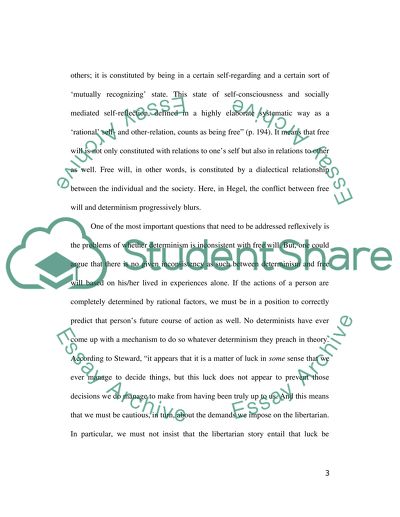Cite this document
(“Determinism Essay Example | Topics and Well Written Essays - 1000 words”, n.d.)
Retrieved from https://studentshare.org/environmental-studies/1414036-determinism
Retrieved from https://studentshare.org/environmental-studies/1414036-determinism
(Determinism Essay Example | Topics and Well Written Essays - 1000 Words)
https://studentshare.org/environmental-studies/1414036-determinism.
https://studentshare.org/environmental-studies/1414036-determinism.
“Determinism Essay Example | Topics and Well Written Essays - 1000 Words”, n.d. https://studentshare.org/environmental-studies/1414036-determinism.


